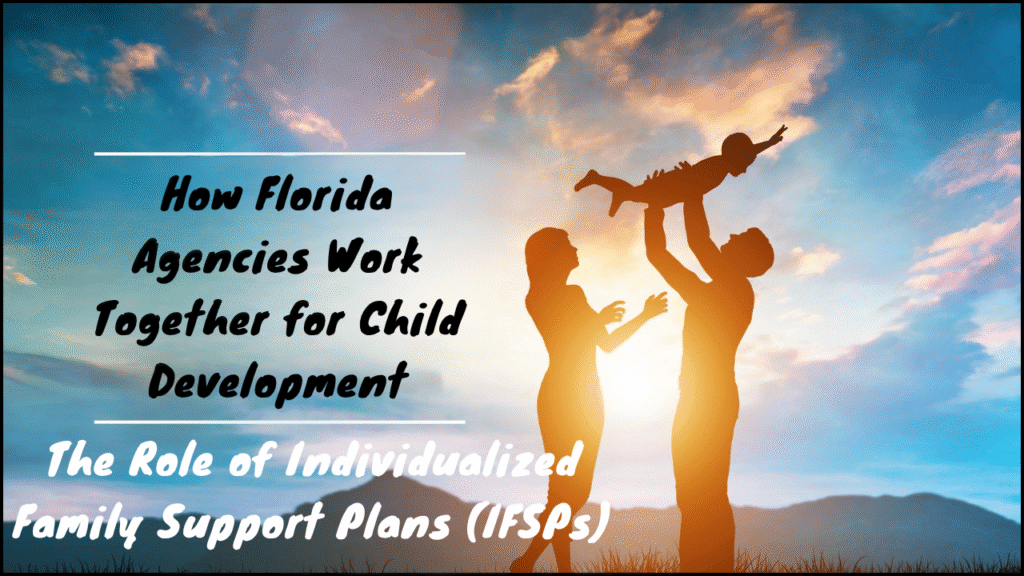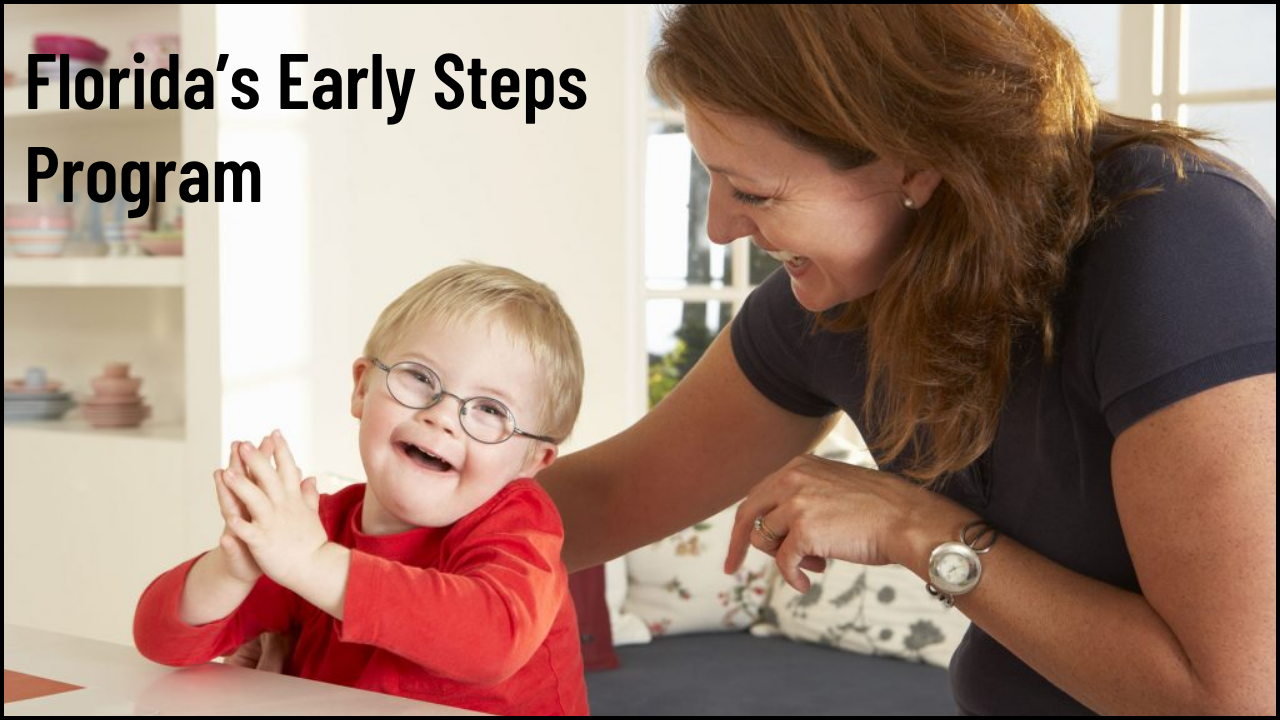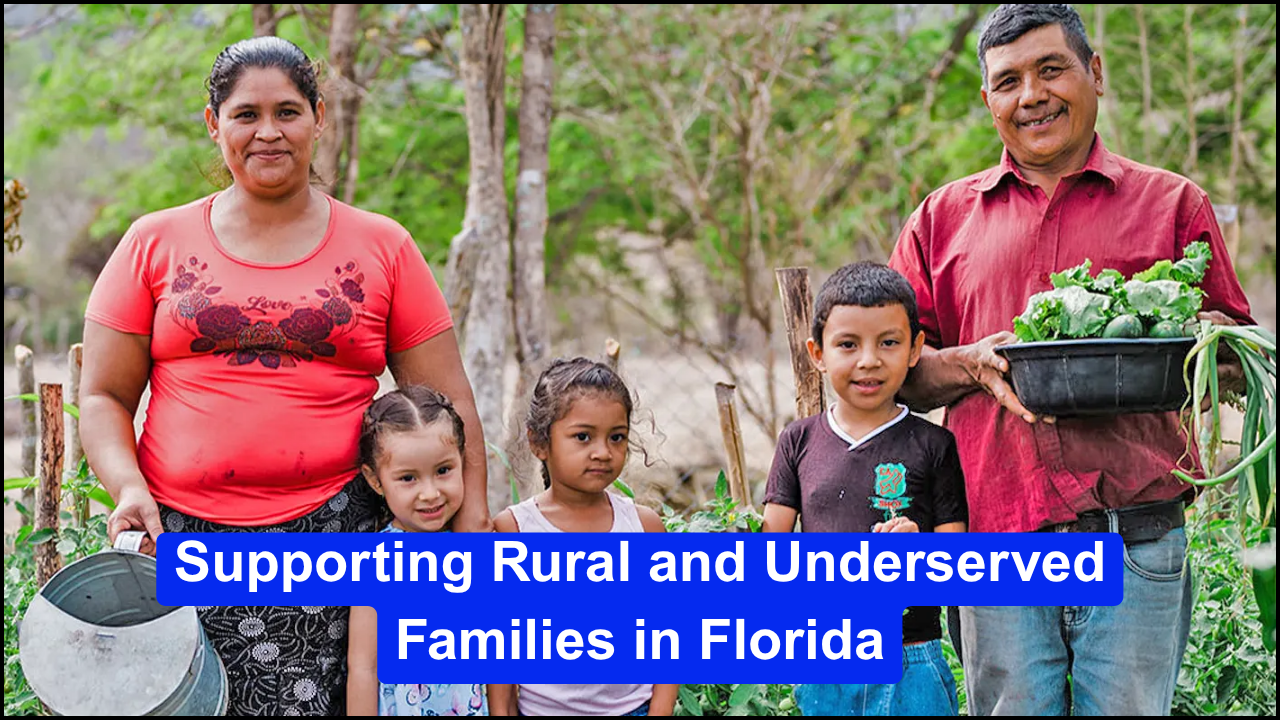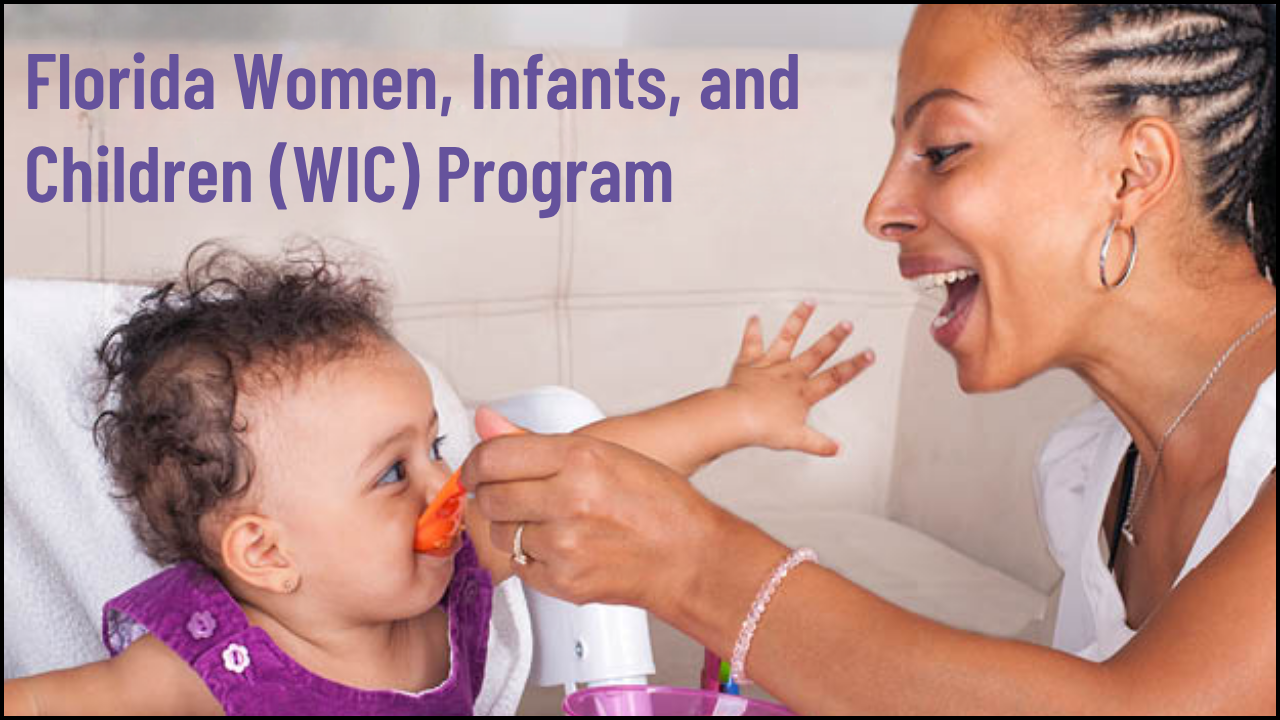
Florida’s child development system focuses on collaboration, personalization, and family-centered practices. A coordinated framework involving multiple agencies ensures that children with developmental delays or disabilities receive early intervention through structured support. Central to this effort is the implementation of Individualized Family Support Plans (IFSPs), a legally mandated tool under Part C of the Individuals with Disabilities Education Act (IDEA). These plans are not created in isolation. They result from the combined efforts of various Florida agencies that share information, services, and responsibilities to support the developmental needs of children from birth to age three.
Table of Contents
Key Agencies Involved in Child Development in Florida
Multiple public institutions, community-based organizations, and health departments participate in Florida’s early intervention system.
- Florida Department of Health (DOH)
- Children’s Medical Services (CMS)
- Early Steps Program
- Department of Education (DOE)
- Agency for Persons with Disabilities (APD)
- Department of Children and Families (DCF)
- Local Early Learning Coalitions
- School Districts’ Exceptional Student Education (ESE) Units
Collaborative Functions Among Agencies
Coordination lies at the heart of Florida’s child development strategy. Agencies interact in the following ways:
- Referral Networks: Children are referred for services through hospitals, pediatricians, child welfare workers, or childcare professionals. The Early Steps program receives and channels these referrals appropriately.
- Interdisciplinary Evaluation: Teams comprised of healthcare providers, psychologists, speech therapists, and educators perform comprehensive assessments to determine eligibility and needs.
- Joint Service Planning: Family support coordinators facilitate meetings that involve parents and professionals to draft the IFSP.
- Funding Collaboration: Medicaid, private insurance, and state programs share the cost of services to reduce the financial burden on families.
- Data Sharing Agreements: Agencies securely exchange developmental records to prevent service duplication and ensure continuity.
Individualized Family Support Plans (IFSPs): Core Elements
IFSPs are not static documents but dynamic plans shaped through a family-centered and team-based process.
Key Features of an IFSP:
- Focus on family needs and priorities, not just the child.
- Integration of natural environments, such as home or daycare.
- Specification of measurable outcomes linked to real-life routines.
- Clear designation of service providers and schedules.
Role of Early Steps Program
Florida’s Early Steps Program, operated under the Department of Health, serves as the primary gateway for families needing early intervention services.
- Offers free developmental screening for eligible children.
- Assigns Family Resource Specialists to each case.
- Coordinates with therapists and community agencies to implement the IFSP.
Key Services Offered Under IFSP
| Service Category | Details Provided |
|---|---|
| Speech and Language Therapy | Helps children improve communication skills. |
| Occupational Therapy | Assists with fine motor skills and sensory integration. |
| Physical Therapy | Enhances gross motor development and mobility. |
| Family Counseling | Supports caregivers in managing developmental challenges. |
| Developmental Instruction | Provides teaching strategies through daily activities. |
| Assistive Technology | Offers tools like adapted toys or mobility aids. |
| Vision and Hearing Services | Diagnoses and manages sensory impairments. |
Florida Department of Health’s Role in Oversight
The DOH provides regulatory and logistical support to ensure services align with federal and state guidelines.
- Develops statewide policy for IFSP implementation.
- Monitors program compliance through audits and reviews.
- Offers professional development for early intervention providers.
Cross-Agency IFSP Teams
| Agency | Specific Role in IFSP Process |
|---|---|
| Early Steps | Primary coordinator for IFSP creation and service delivery. |
| CMS | Supplies medical consultants and specialized pediatric care. |
| DOE | Facilitates transition planning to preschool services after age three. |
| APD | Connects families with lifelong support services for children with disabilities. |
| DCF | Ensures child welfare needs are addressed within the IFSP. |
Family Involvement in IFSP Development
Florida agencies emphasize active family participation at all levels of planning.
- Families share routines, concerns, and goals during the initial IFSP meeting.
- Input from caregivers helps tailor interventions to daily life activities.
- Parents approve and sign off on all final plans and updates.
Transition Planning from IFSP to IEP
When a child turns three, responsibility shifts from the IFSP to an Individualized Education Program (IEP) under the Department of Education.
- Agencies begin transition planning six months before the third birthday.
- Families meet with local school districts to determine appropriate preschool services.
- Continuity of services is ensured to reduce learning disruptions.
Challenges in Multi-Agency Coordination
Although Florida’s system is robust, several challenges persist:
- Geographic Disparities: Rural areas may face shortages of specialists.
- Cultural Barriers: Diverse families may struggle to access linguistically appropriate services.
- Funding Gaps: Insurance denials or out-of-pocket costs can hinder consistent care.
- Staff Turnover: High turnover in case managers can disrupt continuity.
Improvements and Innovations
Recent improvements aim to strengthen Florida’s early intervention system:
- Launch of Family Engagement Toolkits for better communication.
- Expansion of tele-intervention services to reach remote families.
- Development of shared digital platforms to unify service documentation.
Benefits of the IFSP Approach
| Benefit Area | Outcome Achieved |
|---|---|
| Family Empowerment | Families take an active role in decisions and service planning. |
| Holistic Support | All aspects of development—physical, social, emotional—are considered. |
| Service Integration | Seamless coordination prevents service duplication or neglect. |
| Individualization | Services reflect each child’s unique developmental path and family context. |
| Outcome Tracking | Measurable goals ensure accountability and progress monitoring. |
Parting Insights
Florida’s child development ecosystem relies on shared responsibility and integration among public agencies. The Individualized Family Support Plan acts as both a roadmap and a collaborative platform, ensuring that children with developmental delays receive early, effective, and family-centered interventions. Through this model, Florida strengthens the foundation for lifelong learning and well-being for its youngest residents.





